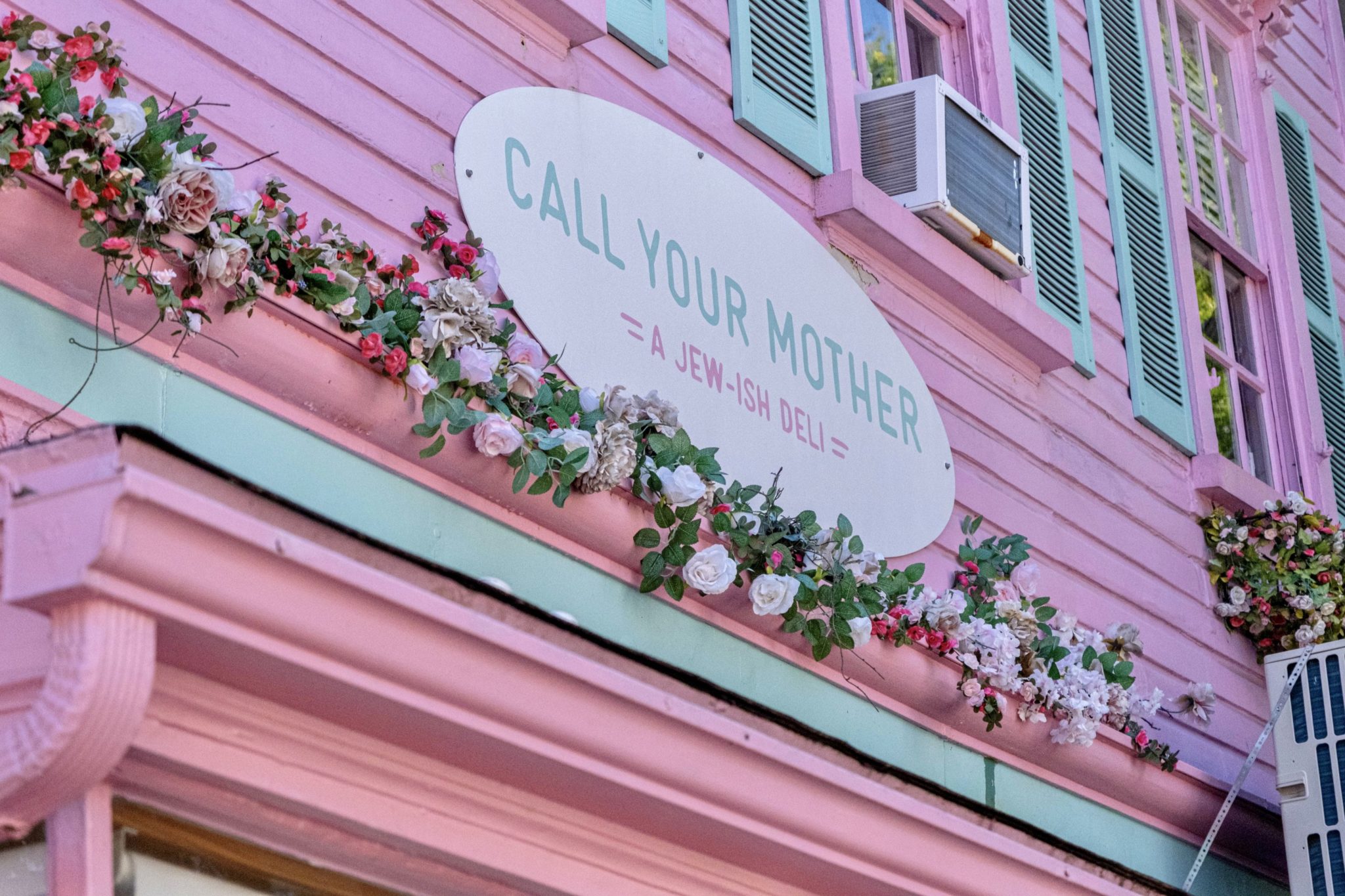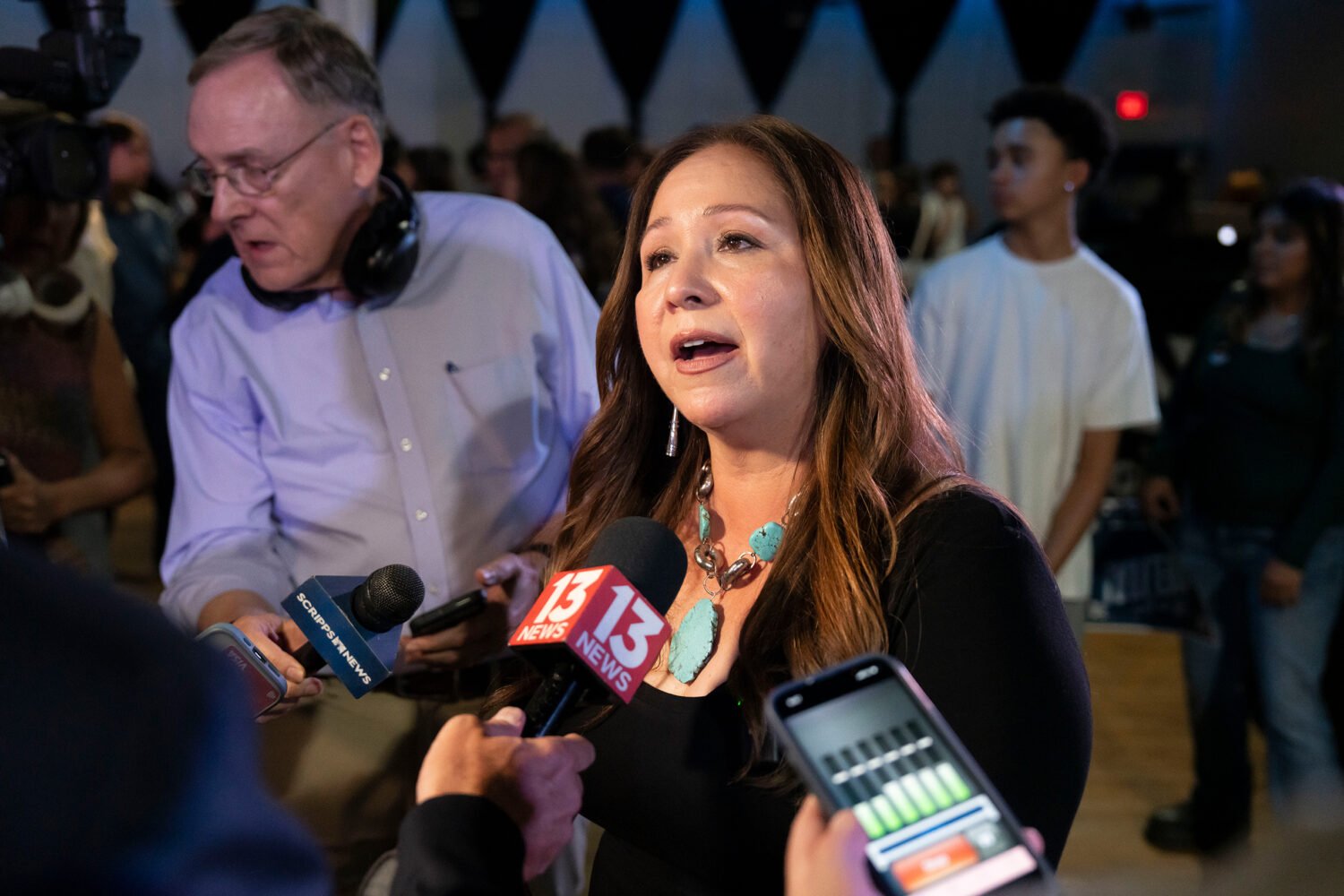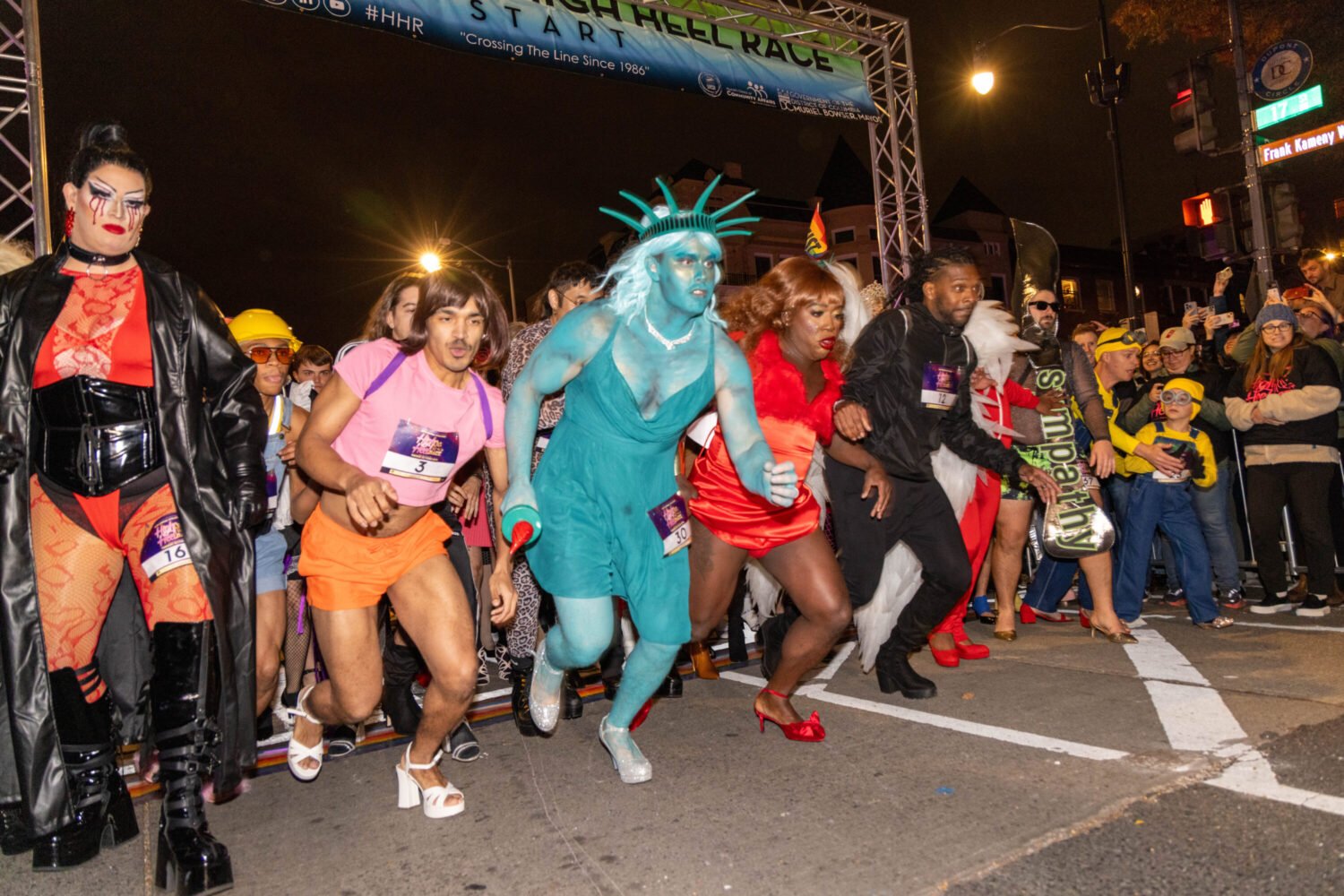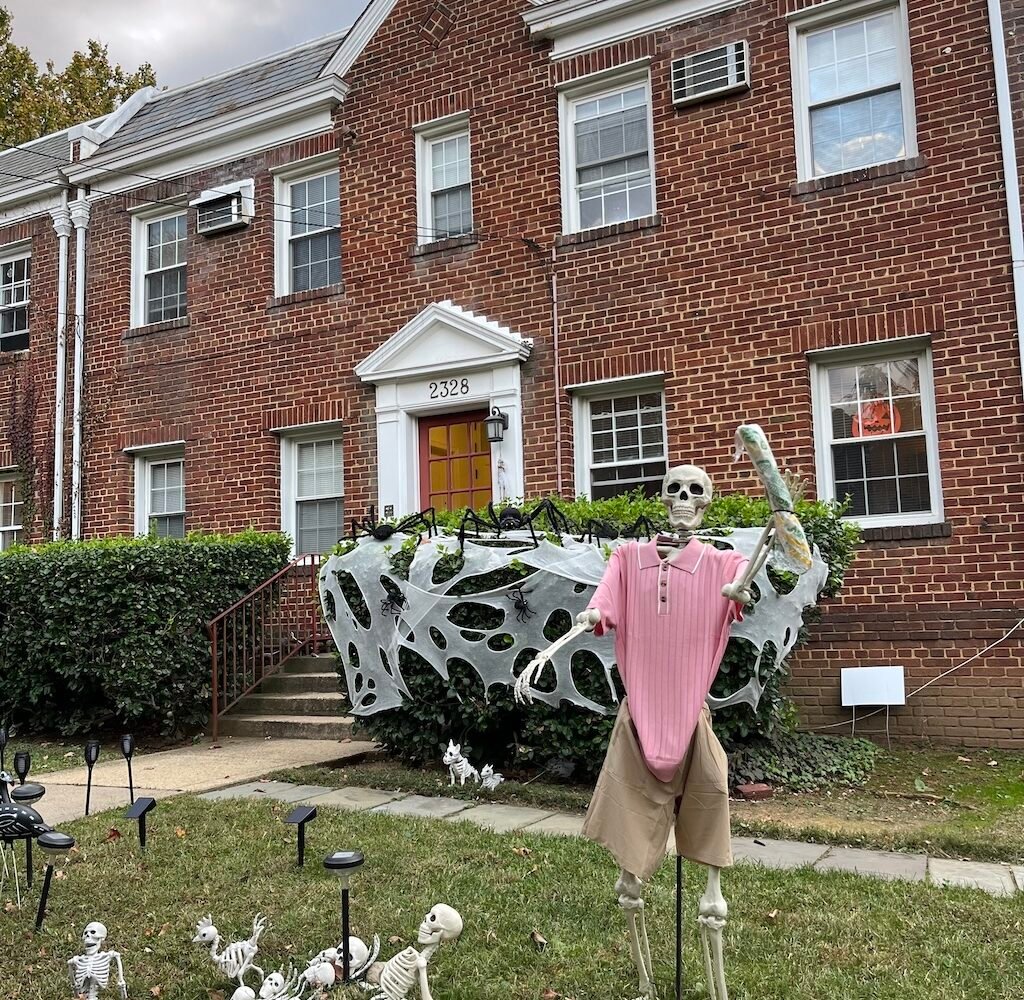Nestled in a residential area of Georgetown—in between the tony boutiques and the Hoyas’ campus—lies a hot pink beacon of controversy: the neighborhood’s Call Your Mother location.
The shop’s propensity to draw crowds and its zoning have become a bone of contention for some residents—and, if a DC board rules in their favor Wednesday, the city could force Call Your Mother to close the location. “We’re just serving comfort food and trying to bring a little happiness to the corner,” Call Your Mother co-founder Andrew Dana tells Washingtonian. “It’s too bad we’re here.”
Some neighbors, Dana says, fought the shop’s opening before the Georgetown location sold its first schmear. For Melinda Roth, a law professor at George Washington University, the dispute began when one of her neighbors knocked on her door in 2019 to let her know a bagel shop would open on their block in a spot previously occupied by a small local gift store.
“Most of the long-term residents who know what the neighborhood was like before 2020, they’re the ones who are opposed,” says Roth, the lead plaintiff on a lawsuit that challenged Call Your Mother’s permit. Neighbors “like the restaurant, and they wanted it to stay in Georgetown—they just wanted it to stay in the appropriate place.”
For Roth, an appropriate place would be Georgetown’s M Street and Wisconsin Avenue business corridors, already host to a slew of retail. She says her neighborhood has been overrun with patrons of the wildly popular bagel shop, some of whom camp on her front doorstep to eat.
Dana says the store already takes steps to limit any potential disturbance to their neighborhood. Call Your Mother’s Georgetown shop neither takes UberEats orders, he says, nor offers outdoor seating. It even hired someone recently to patrol the area around the restaurant and urge stragglers off the neighbors’ property.
Despite those efforts, Roth says, the bagel place is simply not a good fit for a residential neighborhood. “It’s not something where there could be conditions that would somehow change that.”
According to Georgetown-area advisory neighborhood commissioner Topher Mathews, even though Call Your Mother occupies the site of former businesses, that block of O Street isn’t zoned for commercial use. So the store had to apply for a permit before DC’s Board of Zoning Adjustments to be recognized as a corner store—a legal category introduced in 2016 that allows a shop to operate in residential-zoned areas as long as it’s not within 750 feet of an existing corner store.
The zoning board granted the variance, but the 2016 zoning law also stipulates that new corner stores can’t be within 750 feet of existing commercially zoned blocks—and a small strip of commercially zoned real estate, which hosts longtime neighborhood deli Wisemiller’s, is just over a block away. Plus, the code also prevents these corner stores for being used for the “on-site cooking of food,” a stricture that would appear to include the hot sandwiches on Call Your Mother’s menu. So Roth and her neighbors appealed the zoning board’s ruling to the DC Court of Appeals, which vacated the permit and remanded the matter back to the zoning board.
Now Call Your Mother needs to have two permits approved on Wednesday to remain in operations in Georgetown: the aforementioned area variance, so it can continue to operate as a corner store, and a special exemption to allow it to sell prepared food on-site.
While Call Your Mother likely always faced an uphill battle in a neighborhood where residents don’t tend to fear the court system, not every resident is opposed to the shop. One Georgetown resident who moved in after Call Your Mother opened and requested to remain anonymous out of fear of backlash from neighbors, said it was amenities such as the bagel shop that drew her to the neighborhood in the first place.
“We live two blocks from a major university. Having food for faculty and staff is sort of a reasonable assumption we made when we bought our houses,” the resident says. “We live in a city.”
















